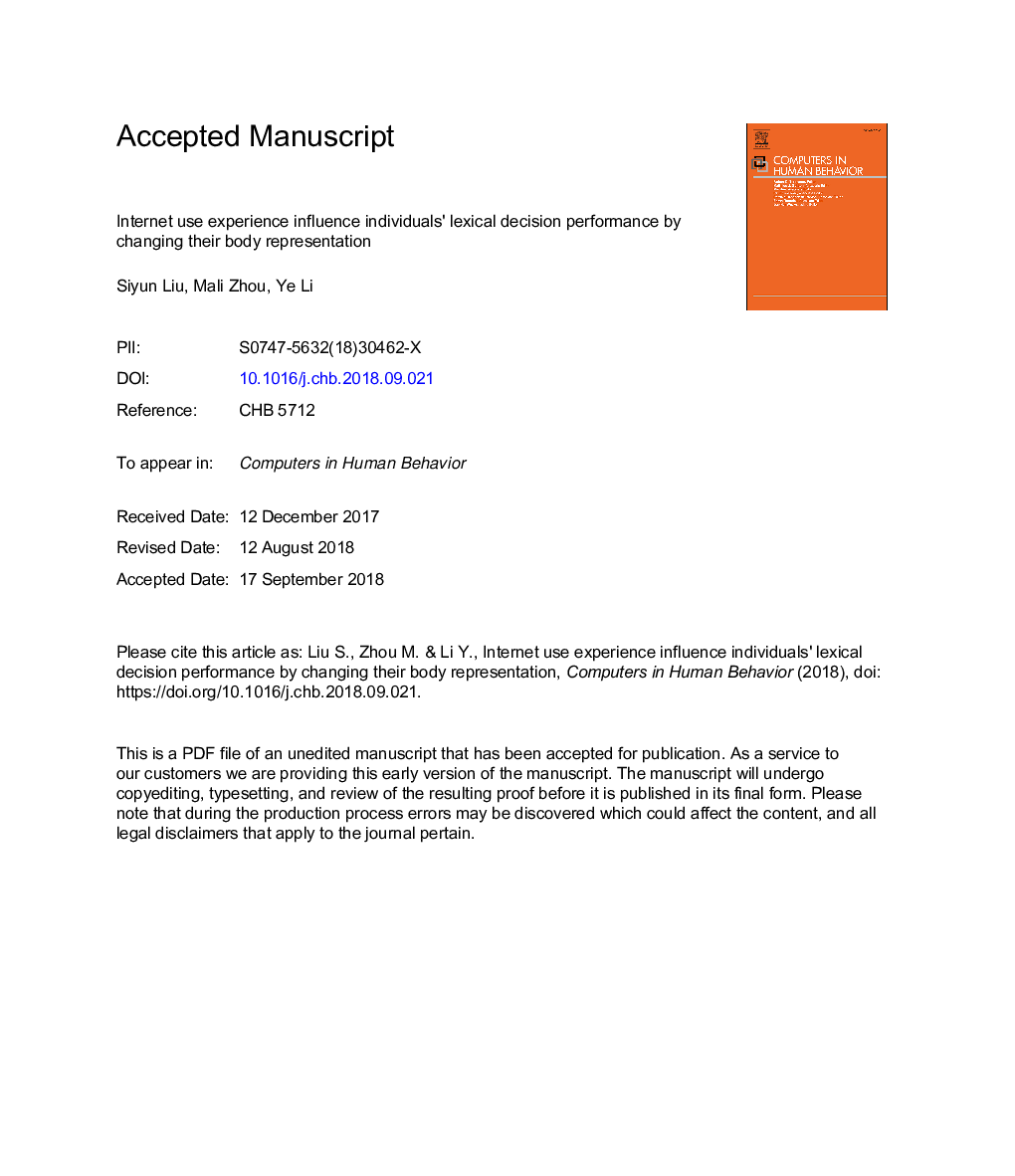| Article ID | Journal | Published Year | Pages | File Type |
|---|---|---|---|---|
| 11024014 | Computers in Human Behavior | 2019 | 38 Pages |
Abstract
Human-computer interactions keep changing the way humans experience the world, yet the underlying mechanism for such interactions remains obscure. As humans' bodily experiences play an important role in cognition, the current study designed three experiments to investigate whether individuals with different extent of internet use experience would perform differently in a lexical decision task in which words related to body movement in different ways were used as stimuli. All the experiments were conducted in a five-step sequence: the lexical decision pre-test, the body representation pre-measurement, the tool-use training, the body representation post-measurement, and the lexical decision post-test. The participants with high (Nâ¯=â¯32 in Exp. 1, Nâ¯=â¯20 in Exp. 2, Nâ¯=â¯18 in Exp. 3, respectively) or low (Nâ¯=â¯28 in Exp. 1, Nâ¯=â¯23 in Exp. 2, Nâ¯=â¯22 in Exp. 3) level of internet-use experience were recruited. The results of the study revealed that both groups of the participants performed differently in a lexical decision task when the words used in the task were action verbs or nouns which refer to the tools used in the immediate space of the body, but not when words included metaphorical orientation information related to body movement. This study provided further empirical evidence for the impact of internet use experience on individual's conceptual processing via body representation changes.
Related Topics
Physical Sciences and Engineering
Computer Science
Computer Science Applications
Authors
Siyun Liu, Mali Zhou, Ye Li,
